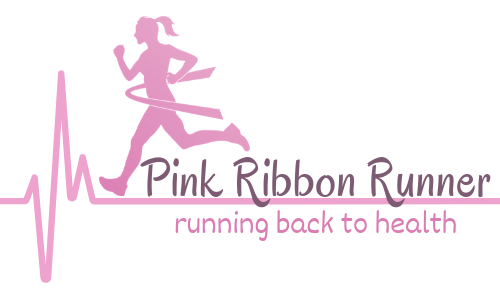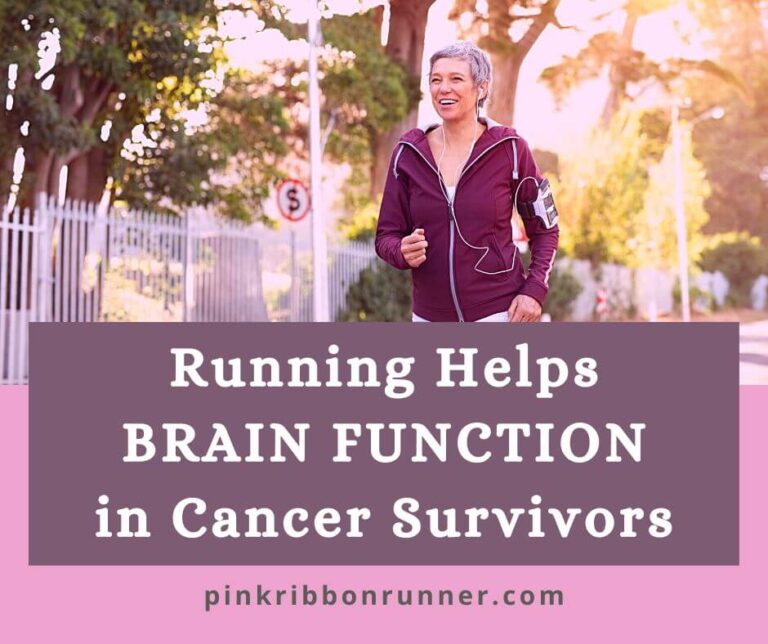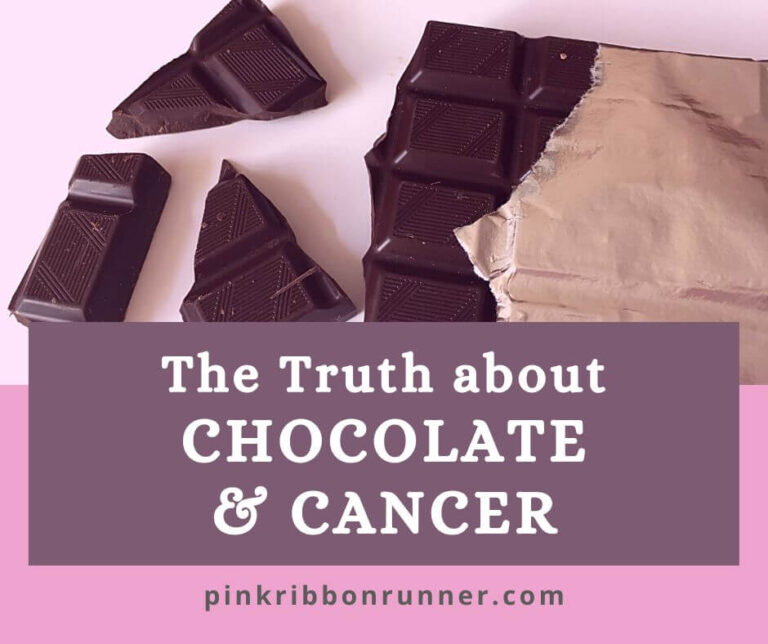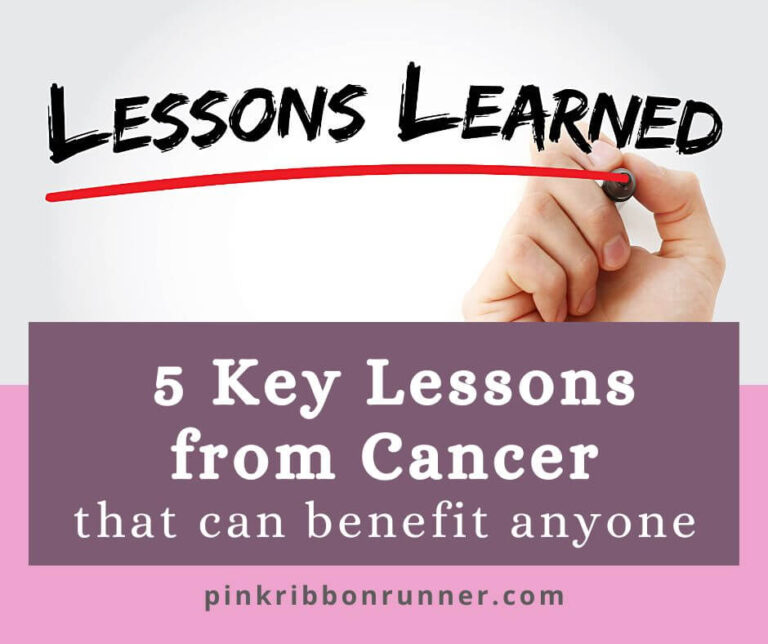How to Recover from Chemo Brain after Breast Cancer Treatments
Many breast cancer survivors describe feelings of brain fogginess, confusion, trouble remembering and thinking more slowly. And while that foggy feeling is an issue inside the brain, it is not ‘in your head’. Chemo brain is a real medical issue. It is a side-effect of your cancer treatments. And, you don’t just have to ‘live with it’. While time will help it fade, there are things you can do now to make your life better.
I suffered from chemo brain for years after my breast cancer treatments were over. I thought I could go back to a normal life afterwards. But my life was not normal. I struggled with chemo fog, and I still have some lingering issues, as I am currently on hormonal therapy. But I have found ways to cope with the symptoms of chemo brain. I want to share what I have learned with you now.

What is Chemo Brain?
Chemo brain, also referred to as ‘chemo fog’, is a common term used by cancer survivors to describe thinking and memory problems that occur during and after cancer treatments. While the exact mechanism of this side effect is unknown, it is generally believed to be the result of toxic effects of chemotherapy and other cancer treatments on the brain.
Chemo brain can cause problems with short-term memory, concentration, attention, brain processing speed, multitasking and other higher level brain functions.
The good news is that for most breast cancer survivors, these cognitive difficulties are temporary and usually fade over time. However, there are several things you can do to help manage these symptoms in the meantime.

What is the Medical Term for Chemo Fog?
Chemo fog and chemo brain are layman’s terms, often used interchangeably as they mean the same thing. However, they are not usually used in the medical literature. There are a few medical terms used by doctors and scientists. These include the following:
- Cancer treatment-related cognitive dysfunction
- Cancer-related cognitive impairment
- Post-chemotherapy cognitive change
Cancer-related cognitive impairment (CRCI) is the most common term used in the scientific literature and seems more widely accepted.
What are the Symptoms of Chemo Brain in Breast Cancer Survivors?
Cognitive impairments make everyday tasks more difficult and frustrating. Chemo brain can lead to problems at work, school, at home and in social situations. And this side effect of cancer treatments can lead to anxiety, depression and reduce quality of life.
But what exactly are these cognitive impairments and how does it make a breast cancer survivor feel? Let’s look at the symptoms breast cancer survivors suffering from chemo brain may experience.
- Forgetfulness
- Feelings of mental fogginess or clouded thoughts
- Trouble concentrating
- Lack of attention span
- Forgetting common words
- Taking longer to finish tasks
- Difficulty remembering names, events, and dates
- Trouble learning new things
- Feeling disorganized
- Slower thinking
- Lapses in short-term memory
- Confusion or feeling lost
- Inability to multitask
- Trouble remembering or participating in conversations
- Difficulty recalling images or lists of words

What is the Difference Between Chemo Fog, Alzheimer’s, and Dementia?
There are many reasons for symptoms associated with brain fog. Certainly, this term isn’t only reserved for cancer survivors. Aging, menopause, lack of sleep, nutrient deficiencies, and brain disorders can all produce similar symptoms. However, chemo brain is reserved for cancer patients and survivors. After all, it is in the name CHEMO, short for chemotherapy, brain.
While it can be hard to tell what exactly is causing your symptoms, there are some differences between some degenerative brain diseases, such as Alzheimer’s and dementia, and chemotherapy fog.
Breast cancer survivors with chemo brain may have their memory return when given clues, while Alzheimer’s patients memory does not return when prompted. For example, if you were shown a picture of an apple, you may remember when given the clue of “red fruit”. This clue would not be helpful to an Alzheimer’s patient.
Dementia patients also have other symptoms, such as personality changes, hallucinations and physical motor ability changes that don’t typically occur in chemo fog.
What Is the Difference Between Brain Aging and Chemo Brain?
There may be very little difference between brain aging and chemo brain. Some studies have shown that chemotherapy may speed up the brain’s aging processes. There appears to be little difference in biological markers of aging and effects of chemotherapy in brain cells. However, the researchers concluded that more research is needed to fully understand the reasons for this.
It can also be difficult to tell age-related forgetfulness from chemobrain, especially in post-menopausal women, when symptoms are mild. However, sudden memory and cognition changes during or after cancer treatments can usually be attributed to chemo brain.

Is there a Test for Chemo Brain?
There is no specific medical test for chemo brain in breast cancer survivors. Doctors usually make the diagnosis based on the description of your symptoms and proximity to treatments. Other medical tests, such as blood work, EEG and MRI, may be performed to rule out other diseases that can cause similar symptoms.
Standard brain function and memory tests are usually normal in those suffering from chemo fog. However, there is a specific cognition (brain function) test that can be done by cancer survivors. The FACT-Cog test, which stands for Functional Assessment of Cancer Therapy – Cognitive Function, may be used by trained professionals to determine the degree to which chemotherapy has affected a patient’s brain function and quality of life. However, this questionnaire-based test is not commonly used in clinical oncology practice.
What causes Chemo Brain in Breast Cancer Survivors?
Chemotherapy is known to result in chemo brain in up to 75% of breast cancer survivors. Anthracycline-based chemotherapy, with drugs such as doxorubicin and epirubicin, seem more likely to affect brain function in cancer patients. Other drugs such as cyclophosphamide, adriamycin, 5-FU and taxol also seem particularly good at contributing to symptoms of brain fog.
However, chemotherapy is not the only cancer treatment to produce these troubling symptoms.
Radiation, target therapy, immunotherapy, surgery, and hormonal medications can also affect the brain function of breast cancer survivors to varying degrees. There may also be a genetic component making some people more prone to chemo brain than others.
How do Cancer Treatments Cause Brain Fog?
The reasons for chemo brain are not well understood. There are speculations about the underlying mechanisms, but they are just theories at this point. More research to study this side effect of cancer treatments is needed and underway.
There may be direct effects of treatments on brain function. This may be due to DNA damage, disruption of blood flow, or interference with proteins and neurotransmitters. Brain aging may be accelerated with treatments such as chemotherapy and radiation treatments.
There are likely also psychological factors too. Stress, fatigue, anxiety, and depression are also thought to contribute to chemo brain symptoms. Post-traumatic stress disorder (PTSD) may also contribute to the impaired cognition seen in chemo fog.
Sleep disorders associated with cancer and cancer treatments also influence the severity of chemo brain symptoms. A lack of enough quality sleep will slow down brain processes, even in people without cancer.

Do Tamoxifen and Aromatase Inhibitors Cause Chemo Brain?
Endocrine therapies are associated with breast cancer survivor complaints of brain fog. However, studies vary in determining how strong this association is, some saying strongly and some saying slightly.
Estrogens have a protective effect on brain function. The medications used to suppress the effects of estrogen on breast cancer cells also suppress this brain safeguarding, which can manifest as chemo brain symptoms.
However, the risk of chemo brain is not equal among all medications used in hormone-responsive breast cancer. It seems tamoxifen is more likely to produce these side-effects, whereas exemestane is the least likely to cause these symptoms. The other aromatase inhibitors, such as anastrozole and letrozole, are a little more likely to cause issues than exemestane, but less than tamoxifen.
Dose and duration of medications are factors in the significance of hormonal treatments and chemo brain. Use of these tamoxifen and aromatase inhibitors with other cancer treatments, such as chemotherapy and radiation, also increase risk for chemo fog.
How Long Does Chemo Brain Last?
In many cancer patients, the symptoms associated with chemo brain will subside once treatments stop. Often, the chemo fog will lift by 6 months post-treatments. However, for as many as one third of breast cancer survivors, the fog can last for many years.
Long-term chemo brain can be debilitating for some, significantly impacting their ability to work and return to a relatively normal life. For a few, this could be as long as 10 years after treatments.
Is Chemo Fog in Breast Cancer Survivors Permanent?
Chemo brain is not usually permanent in breast cancer survivors. With treatments and a healthy lifestyle, the effects of chemo fog eventually subside. However, depending on your age, chemo brain symptoms can blend into natural memory loss that comes with aging.
How do You Get Rid of Chemo Brain?
For most, time will heal chemo brain. Symptoms fade over time after treatments are complete. For those who find their symptoms lasting long term, there are a few things you can do to help improve your cognitive function.
While there are no specific treatments for chemo fog, people with chemo brain may be able to speed healing with the following:
1. Cognitive Rehabilitation
Your oncology team may be able to refer you to a cognitive rehabilitation program. These programs include therapeutic memory tasks, cognition games and puzzles to improve the function of your mind. Many of these programs were designed for brain-injured patients, but studies have found that cancer patients can also benefit from these cognitive therapies.
2. Regular Exercise
Regular exercise is known to help with many of the side effects of cancer. And cancer-related cognitive impairment is no exception. Many studies have shown beneficial effects of aerobic exercise, such as walking, and yoga.

3. Nutritious Meals
What we eat affects how we think. Eating nutritious meals helps support good brain function in healthy people. A poor-quality diet makes it tough to think clearly and remember things. It is no different for those suffering from chemo brain.
However, it may be harder for those experiencing chemo fog to make nutritious meals. Planning meals is harder when you are not thinking clearly. Cooking tends to be more difficult too, as recipes may be forgotten and steps muddled. And choosing healthier options may also be more challenging.
4. Improve Sleep
Sleep is an important factor in the way your brain functions. Even a healthy brain suffers from lack of sleep. Cancer patients often have trouble falling asleep, staying asleep or getting the quality of sleep that they need to stay mentally sharp.
Developing a bedtime routine and good sleep habits to maximizes the amount and quality of sleep you get will help your brain function at its best.
5. Meditation
Mindful meditation helps to clear and quiet the mind. It helps you get rid of cluttering thoughts and worries. During even a short session it allows the brain to rest and recover.
A few studies have demonstrated the benefits of meditation on brain function. Even listening to classical music, as a form of meditation, can help.

6. Staying Organized and Following Routines
Making use of journals, calendars, planners, sticky notes, and notebooks can help those with chemo brain function better. Organizational apps on smart phones are a convenient way to stay on top of life’s events. Make notes and schedule events to help you remember things. Keep a daily journal of your thoughts, emotions, or daily events.
Keeping common items, such as car keys and wallets, in the same location will make them easier to find. Doing important tasks when you have the most energy can also help you function better in daily life. Take the same route to the store or your workplace to avoid getting lost. Snap photos of vacations or special events that you don’t want to forget.
And ask for help when you need it. Tell family, friends, and coworkers what is happening. Even if they can’t help you, simply having them understand what you are going through can be a weight off your shoulders.

What Exercises are Best for Chemo Brain in Breast Cancer Survivors?
While there currently is no set of specific exercise recommendations for those who have chemo brain, the best exercise seems to be aerobic exercise. Even just sustained walking has been shown to have a benefit.
Researchers have not used a standard set of exercise regimes, so it is difficult to fully assess. However, doing 10 to 60 minutes of cardio exercise had an impact on brain function of breast cancer survivors in several of the studies. And 20 minutes of cardio combined with a full-body strength routine also improved cognitive abilities.
Yoga, qi gong, and tai chi are also good exercises for improvement in cancer fog symptoms. Many breast cancer survivors report having better cognitive function after these exercises.
What Foods help with Chemo Brain in Breast Cancer Patients?
There are few studies that investigate the benefits of dietary components on brain function of breast cancer patients. However, those studies that do exist suggest that diets rich in vegetables and fruits are better for those with cancer-related cognitive impairments.
Other studies have looked at omega-3 polyunsaturated fatty acids which help improve brain function in non-cancer patients. It is assumed that they may also help improve cognition in those who undergo cancer treatments. Fish and avocados are rich in these fatty acids.
What can I do to Improve Memory and Concentration After Breast Cancer?
Keeping your brain active is important to overcoming chemo brain. Reading, doing puzzles, and memory games can help improve symptoms of brain fog in breast cancer survivors. Just as workouts improve muscle function, brain exercises also help improve brain function.
It is called cognition training and can lead to improvements in memory, brain processing speed, word recall, adaptability, and flexibility in thoughts. While there are programs available, such as BrainHQ and Luminosity, simple word and memory games also improve cognition.

What is the CALM approach to Chemo Brain Treatment?
CALM stands for Cancer And Living Mindfully. It is a psychotherapy intervention developed by Gary Rodin and his colleagues. Recent studies show that the CALM techniques may help improve the quality of life of breast cancer survivors.
The 4 principles of CALM include:
- Controlling symptoms and developing good communication with health care providers
- Promoting positive change in oneself and in close relationships
- Strengthening spiritual well-being and one’s sense of purpose
- Preparing for the future, developing hope, and facing mortality
Breast cancer patients who received brief, professional CALM counselling during their treatments reported less brain fog at 6 months post-treatments. They also rated the CALM interventions as being helpful in managing cognitive symptoms and distress related to their breast cancer diagnosis and treatments.
Are there Medications for Chemo Brain?
There are no medications approved for the treatment of chemo brain in breast cancer survivors. However, your doctor may prescribe drugs to help with particularly troubling symptoms you are experiencing.
Some medications that are used in the treatment of other conditions may be helpful. You will need to discuss the pros and cons of taking medications with your doctor. Some of these drugs include methylphenidate, donepezil, modafinil, and memantine.
However, many studies have demonstrated that non-medication approaches to chemo fog work better than taking these types of drugs.
Can Chemo Brain be Prevented?
Chemo brain cannot be predicted or prevented. To date, we do not understand this troubling side effect well enough.
However, eating healthy meals, regularly exercising, practicing mindfulness, and seeking help early when symptoms appear can help ease and limit the symptoms associated with chemo brain.
If you suffer from chemo brain, comment below if this article has helped you.









